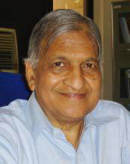
A Healthy and Educated Society as the key to Economic Prosperity
Samani Ritu Pragya
She deliberated on the kind of society created by Mahavira.
The society created and established by Mahavira was a well to do society and not a poor and resourceless society. Mahavira prescribed schedules of articles of consumption. Society with controlled consumption will not violate the natural boundaries. He said that forests should not be cut and earth should not be excavated. This is very important from the point of view of environmental protection. Today it is very difficult to follow these directives because as population grows it becomes essential to construct large factories. But it can be decided that these factories will not produce articles of luxury until the problem of poverty is solved.
For the societal person, Mahavira did not talk about non-possession or renunciation. He talked about limiting desires and consumption. On the other hand, economic activities for development are conceived from the fallacious theory of maximum desire, maximum production and maximum consumption. It has evolved on the basis of materialism. But when we ponder on the issue with a rational mind, the resulting consequences particularly in the context of environment are alarming. So the need of the hour is to give a second thought to the concept of development, which is a threat to the existence of mankind. In utilizing natural resources man should be long-sighted and well aware how far the production activity will influence nature. While transforming certain natural conditions, man only cares for employing improper measures for immediate results.
It’s estimated that 6 million hectares of land is lost due to desertification each year. The more important problems of developing countries are those relating to land and water. Loss of forest makes it difficult for these countries to meet their growing demand of paper, building material and fuel wood.
Air pollution continues to be one of the serious local environmental problems and a serious threat to humans in urban areas.
By 2010, the quantity of fossil fuels burnt per year is likely to be around 35 thousand units beyond the present level. The enormous environmental problem takes its toll in terms of losses of human health and quality of life, natural resources and economic activity makes a compelling case for action. It is a related challenge for cities worldwide to develop a strategy to reconcile economic growth with environmental protection.
Besides scientific survey of natural conditions and resources, the development of economic construction need to make techno-economic appraisal of natural conditions and resources, that is, to make appropriate estimation of the potentiality and consequences of their utilization. The techno - economic appraisal of natural resources must be based on the demand of development and allocation of production resources. Environmental considerations have not played any important role in the national and international economic policies.
It is vital to determine and backup energetically the possibility of attaining an ecologically sustainable, socially desirable and economically productive utilization of resources. But the question is how to attain them? Do we have some guidelines or some model to move out of this present critical situation?
Whenever a threat to society or mankind emerges great personalities and thinkers have played a vital role in life.
Commenting on Acharya Mahapragya's views she said, “He has viewed economics with a balanced outlook. The unilateral approach does not posses the power of resolving the world’s problems. According to him economics is a science of economic prosperity and the limitation of wealth and the limitation of wants is the science of peace, they must complement each other".
“Economics is a normative social science for managing this planet, abounding in natural, human and manufactured resources in such a way so as to guarantee the basic needs of all the beings of the planet, means for sustenance, including for animals and plants a sound habitat, thus ensuring their mental, spiritual, physical and psychological well being.”
There are certain needs that are said to be universal in creating a dignified life. Through economics, human beings are responsible for managing creations. The economic system must be free of any elements of destruction of life. These elements are an inherent contradiction in the system and would eventually bring about its collapse as it is happening with our current systems.
 Dr. Ashok Bapna
Dr. Ashok Bapna